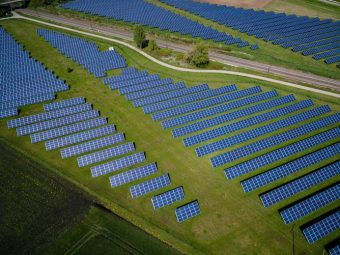
The EEA briefing Cross-border cooperation for deployment of renewable energy, which looks at the challenges posed by cross-border cooperation on renewable energy, found that several key barriers exist deterring EU Member States from launching joint projects. These include the complexity of setting up agreements, potential conflicts with national measures, uncertainty over how to share costs and benefits and public support.
Based on the analysis of three case studies involving six European countries, the EEA makes a series of recommendations to help overcome those challenges. Strong political will, mutual trust, flexibility and a coordinated communication strategy emerge as some of the key enablers behind the success of cross-border cooperation in renewable energy.
The briefing is based on the detailed analysis ‘Cross-border regional cooperation for the deployment of renewable energy in Europe’, which was prepared for the EEA by the European Topic Centre on Climate Change Mitigation and Energy (ETC.CME).
More:
Clear benefits of joint, cross-border projects
Achieving a climate-neutral energy system will require more joint projects between countries. Despite the clear and abundant benefits of such cooperation and a supportive EU policy framework, few Member States have embarked on cross-border project.
Cross-border cooperation on renewable energy delivers multiple benefits for the participating countries: more efficient and cheaper electricity generation, increased certainty in the market, open access to new resources and opportunities, and facilitation of other international projects.
As recently highlighted by the EU Council, such cooperation can also contribute to the integration of the EU internal energy market and a more cost-efficient achievement of national and EU renewable energy targets.
Source: EEA



